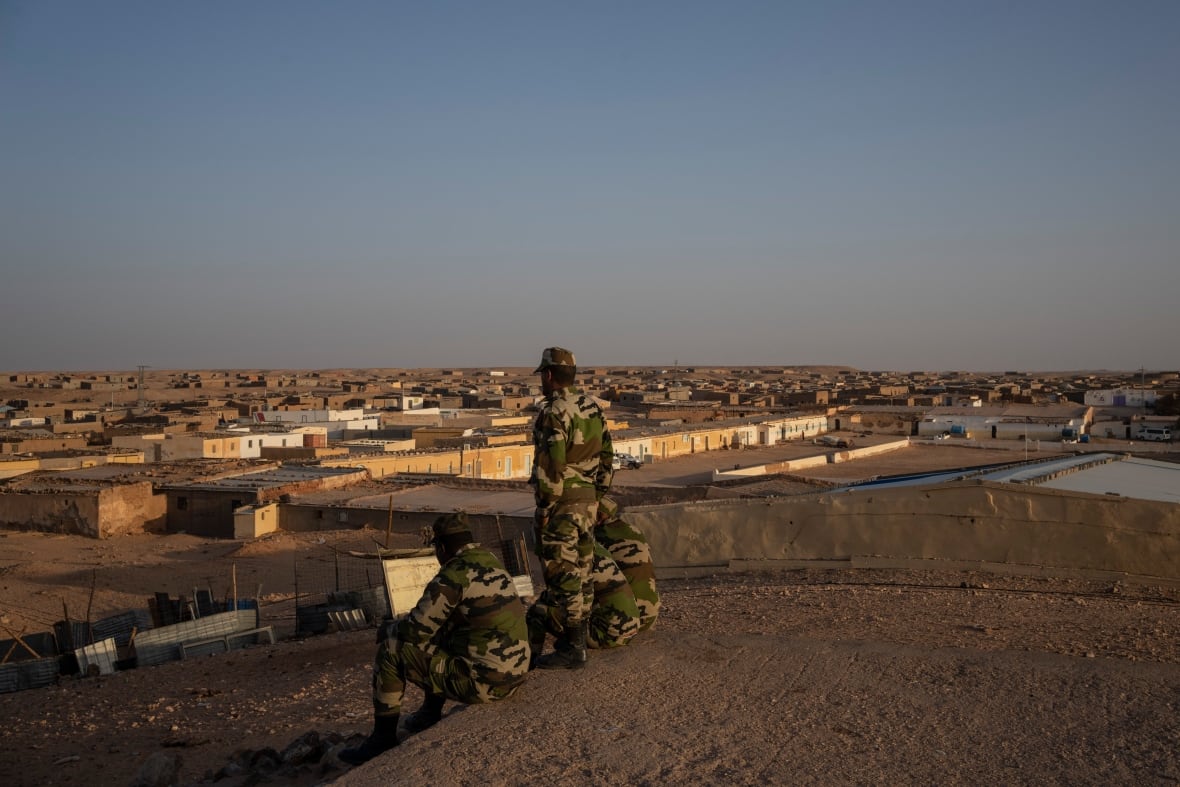Director Christopher Nolan criticized for filming The Odyssey in disputed Western Sahara

Revered Hollywood director Christopher Nolan's next summer blockbuster won't hit theatres until July 17, 2026, and it's already setting precedents — and courting controversy.
The man behind box office hits like Oppenheimer and Inception is currently filming a big-screen version of Homer's post-Trojan War epic The Odyssey, starring Matt Damon, Tom Holland, Anne Hathaway, Zendaya, Lupita Nyong'o and Charlize Theron.
Tickets for IMAX 70mm screenings of the $250-million US movie already sold out earlier this month, a full year before its release. It's the first commercial production to be filmed entirely with IMAX cameras.
While all of this makes the film buzzworthy, Nolan and The Odyssey are coming under fire for filming scenes in the disputed territory of Western Sahara, which Morocco has occupied for the past 50 years and, according to human rights groups, has cracked down on dissent, limits press freedom and restricts entry to foreign journalists and observers.
The organizers of Western Sahara International Film Festival (FiSahara) are leading calls for Nolan and his cast to suspend production in the territory, arguing that Morocco subjects the Sahrawi people to "brutal repression" and normalizes the occupation of what's often referred to as "Africa's last colony."
"We are sure that were they to understand the full implications of filming such as high-profile film in a territory whose indigenous peoples are unable to make their own films about their stories under occupation, Nolan and his team would be horrified," read a statement from FiSahara.
What's the criticism for filming in Western Sahara?FiSahara says that Moroccan media reported Nolan and stars Damon and Zendaya were spotted arriving in the southern coastal city of Dakhla earlier this month.
The English-language website Hespress was among those reporting the production moved to Western Sahara after filming in Morocco.
Festival executive director Maria Carrión says that by filming in the territory they are "perhaps unknowingly and unwillingly" adding to "the repression of the Sahrawi people by Morocco."

Amnesty International has condemned Morocco for "violently" breaking up a demonstration by Sahrawi women activists in early 2024 and destroying the homes of a dozen Sahrawi families in April of that year.
The UN Office for the High Commissioner for Human Rights said in 2024 it "continued to receive allegations relating to human rights violations, including intimidation, surveillance and discrimination against Sahrawi individuals particularly when advocating for self-determination."
Reporters Without Borders once referred to Moroccan-occupied Western Sahara as "a veritable news black hole that has become a no-go zone for journalists."
Neither Nolan nor the studio, Universal Pictures, have reacted publicly to calls to move the production.

The territory, stretching more than 1,100 kilometres along the Atlantic coast of northern Africa, is sandwiched between Morocco to the north and Mauritania to the south and much of the east, with a sliver of land in the northeast bordering Algeria.
Morocco invaded and annexed Western Sahara, which the United Nations refers to as a "non-self-governing territory," after Spanish colonial rule came to an end in 1975, sparking a 16-year war with the militarized Polisario Front, which attempted to declare independence for what it calls the Sahrawi Democratic Arab Republic.
During the 1980s, Morocco constructed a 2,700-kilometre sand wall across the desert to prevent Polisario Front attacks and keep the independence movement restricted to a small eastern stretch of the territory. The area around the barrier is heavily surrounded with landmines.
The United Nations brokered a ceasefire in 1991, which included a promise to hold a referendum on Sahrawi self-determination, but that has yet to happen more than 40 years later.
Today, Western Sahara remains sparsely populated, with an estimated 612,000 people spread out over the 266,000 square-kilometre territory. But the United Nations refugee agency estimates there are more than 173,000 Sahrawis living in five refugee camps in Algeria — one of which is named Dakhla, after the very city where The Odyssey is said to be filming.
The Polisario Front declared an end to its ceasefire with Morocco in November 2020.

The following month, Morocco signed onto the first Trump administration's Abraham Accords, normalizing its relations with Israel on the condition that the U.S. recognize Moroccan sovereignty over Western Sahara.
Israel made the same recognition in 2023, while Spain, France, the United Kingdom and most recently Portugal have backed Morocco's pitch to recognize the territory as an autonomous region under its control.
Why is filming foreign movies there a problem?Nolan, who has also filmed scenes for The Odyssey in Scotland, Ireland and Greece, isn't the first to take a production to the Western Sahara.
Scenes in the second season of the Amazon series The Wheel of Time were also said to have been filmed around Dakhla sometime between July 2021 and May 2022.
And there are efforts to lure others there.
The website for Emerge Film Solutions, which describes itself as a "global network of specialized locally bases content producers, fixers, and camera crews," billed Western Sahara as "one of the most remote feeling film locations in the world."
But FiSahara says Sahrawi filmmakers can't even tell their own stories without fear of repercussions.
"Sahrawis trying to make films about their lives are persecuted and must work clandestinely and at great risk to themselves and their families," the organizers said in their statement.
FiSahara itself is held in the refugee camps inside Algeria, where it screens human rights documentaries. Meanwhile Morocco has created its own Dakhla International Film Festival, the second edition of which was held in June.
Sahrawi journalist and filmmaker Mamine Hachimi, who co-directed the documentary Three Stolen Cameras about a video activist group documenting human rights violations Western Sahara, told Middle East Eye that he, too, was urging Nolan and his stars to "understand the political ramifications" of filming in the territory.
"Art should defy injustice, not perpetuate it," he said.
cbc.ca





